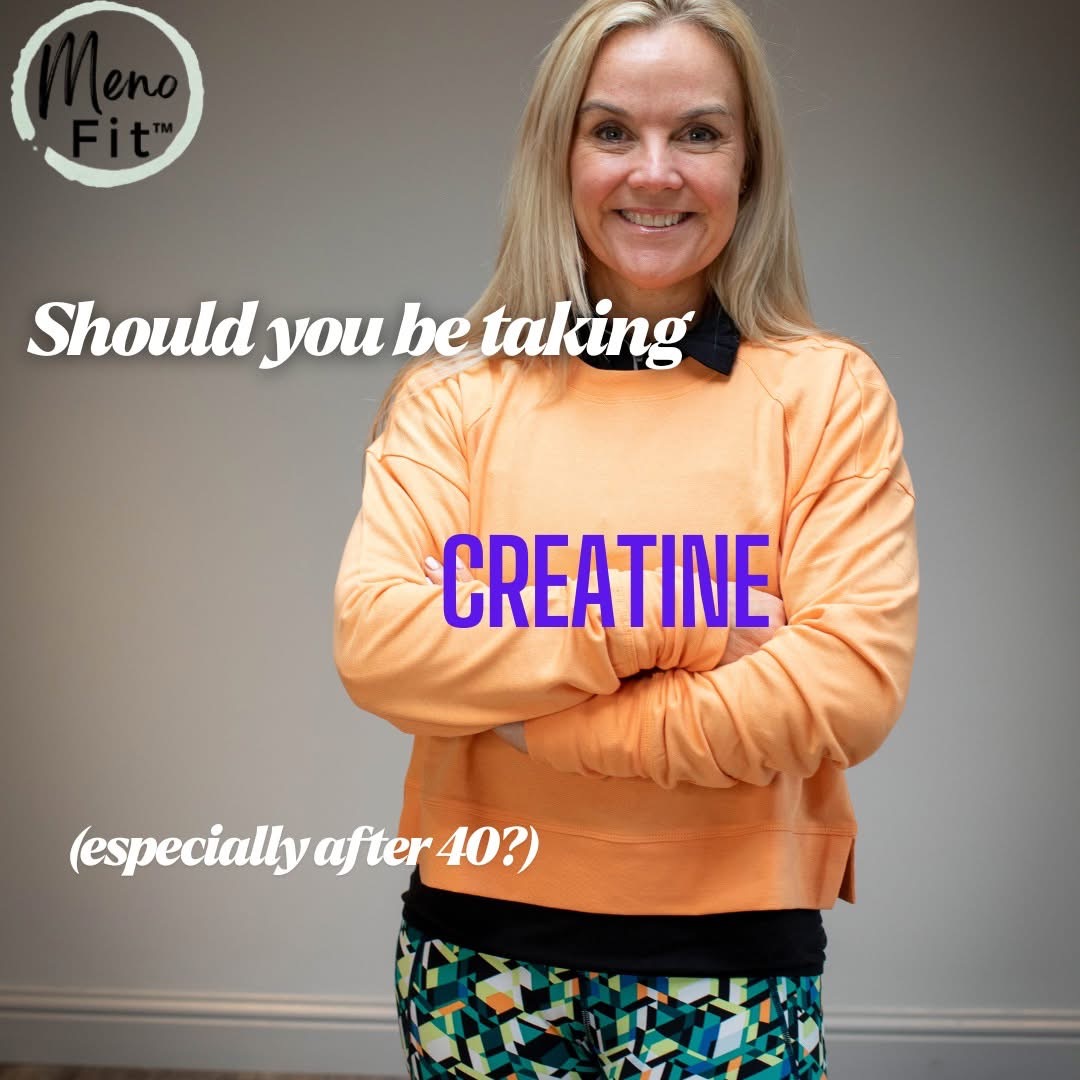Boost Strength, Energy & Brain Power in Menopause

When you hear the word creatine, you might picture bodybuilders or gym bros with giant tubs of powder. But here’s the truth: creatine isn’t just for athletes — it’s a game-changer for women in midlife.
From boosting energy to protecting bone health, creatine is one of the most well-researched, effective, and safe supplements out there. And if you’re navigating perimenopause or menopause, it could be the missing link in your health and fitness routine.
Let’s break it down 👇
🌟 What Is Creatine?
Creatine is a naturally occurring compound found mostly in your muscles. It helps produce energy during short bursts of activity, like weight training, sprinting, or even climbing the stairs.
- Your body makes some creatine on its own.
- You also get it from foods like red meat and fish.
- But to top up your levels — and see real benefits — many women use creatine monohydrate, the most studied and trusted form.
🧠 Why Midlife Women Should Consider Creatine
Hormonal shifts in perimenopause and menopause can bring fatigue, brain fog, muscle loss, and stubborn weight gain. This is where creatine shines:
- Muscle Strength & Preservation 🏋️♀️
Menopause accelerates muscle loss (sarcopenia). Creatine helps you maintain and even build strength, especially when paired with resistance training. - Bone Health 🦴
Bone density naturally declines after menopause. Research suggests creatine + strength training may support stronger, healthier bones. - Brain Function 🧠
Creatine has neuroprotective effects, supporting memory, focus, and processing speed — key areas many women notice changing in midlife. - Energy & Fatigue ⚡
Feeling tired? Creatine helps your cells produce more energy, which can make workouts (and daily life!) feel easier. - Mood Support 😊
Early studies link creatine to improved mood and reduced symptoms of depression — a common challenge in the menopause transition.
📚 What Does the Research Say?
- A 2022 review in Nutrients showed creatine supplementation benefits postmenopausal women by supporting lean mass, muscle strength, and possibly bone density.
- Research published in Menopause journal (2023) points to creatine’s role in protecting brain function during menopause.
- The International Society of Sports Nutrition calls creatine one of the safest and most effective supplements for adults of all ages.
💡 How to Take Creatine
- Dose: 3–5 grams daily.
- When: Anytime — consistency is key.
- How: Mix into water, coffee, or a smoothie (it’s tasteless).
- No loading phase needed.
💧 Pro tip: Stay hydrated, as creatine pulls water into your muscles.
✅ Is Creatine Safe for Women in Menopause?
Yes — creatine is one of the most studied supplements in the world. For healthy adults, it’s considered safe for long-term use.
👉 If you have kidney issues or other medical conditions, check with your doctor before starting.
🔑 The Bottom Line
Creatine isn’t just for men in the gym. For women over 45, it can:
- Support strength and lean muscle
- Protect bone health
- Boost brain power
- Improve mood and energy
Pair it with progressive strength training (like the kind I coach inside my programs) and you’ll unlock serious benefits for body, brain, and wellbeing in midlife.
Supplements like creatine give you an edge — but the real magic happens when you combine them with consistent training, nourishing food, rest, and smart hormone support. That’s where I come in 💛
✨ Want to explore this further?
- Join my Menofit™ program or 21-Day My Time for Change course, designed to work with your hormones, not against them.
- Or start with one of my free workouts on YouTube to see what’s possible.
Here’s to building strength, energy, and confidence in midlife — with science on your side.